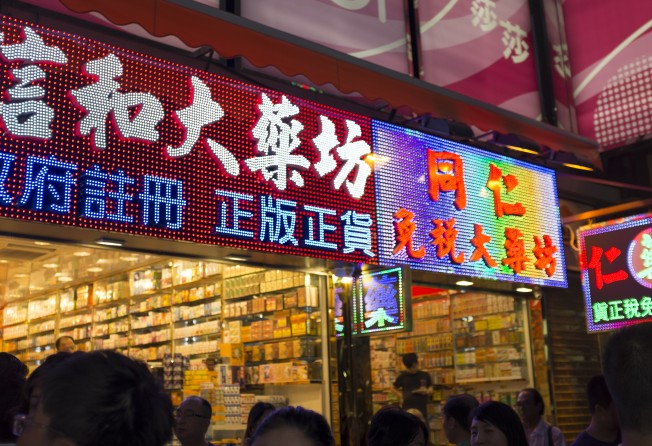Public education needed on Hong Kong pharmacies

Like the maxim "there is always one nearby" for 24-hour convenience stores, drug stores can be found everywhere in Hong Kong. The boom was fuelled by an influx of mainland tourists in search of products with better quality, including medicine and personal care items. But the recent downturn in retail sales means many outlets are struggling to survive, so much so that unscrupulous sales tactics may be used to keep business afloat. Seven drug stores have been named and shamed by the consumer watchdog recently.
At stake is not just the city's reputation as a tourist destination and shopping paradise. As pointed out by the city's pharmacist groups earlier, many shops have sought to pass off as government-registered dispensaries by putting up signs that resemble the universally recognised symbol of "Rx". Some also used the Chinese character for "medicine" in brightly lit signboards to attract customers, who may be misled to believe that the stores are staffed by people with pharmaceutical qualifications. A 70-year-old patient suffering from hypertension was said to have been deceived into buying an unsuitable drug from an unregistered drug store recently.
Admittedly, few people could tell the difference between pharmacies and general drug stores. At present, only about 606 outlets are entitled to call themselves a pharmacy, with pharmacists available to give advice and sell prescribed medicine. The latter, numbering around 4,000, only have a licence to sell over-the-counter drugs for flu, pain and other pre-packaged tablets. Some stores even operate with just a business licence.
Pharmacist groups have proposed that the use of the word "medicine" should be restricted to registered pharmacists to avoid confusion. Whether the word should be monopolised as such is open to debate. The proposal may appear to be just a step to protect the profession's interest. Before considering such a step, officials should perhaps step up public education and enforcement against the sales of unauthorised drugs.